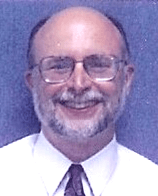Pat Ridgely

Medical Education Consultant for Implantable Medical Devices
Ridgely Consulting
"I wanted to have a career that involved application of science and engineering but also involved a lot of people contact in the form of education. I was especially interested in doing research and then working on the practical application of that research to real-world problems."
What was your major/minor at Purdue and when did you graduate?
I majored in physics as an undergrad, graduating in 1976. I then did my master's in physics and math education, graduating in 1978. I later did an electrical-engineering fellowship at the University of Arizona, and even later got my MD degree at the University of Minnesota.
Did you pursue internships/co-ops, research experiences, volunteer, or join student organizations while you attended Purdue?
I was the student rep on what was then called something like the School of Science Student-Faculty Board, working on School-level policies and issues.
This sort of activity has been a core volunteer item for me throughout my life; for example, I am a past member of the Board of Governors of the University of Minnesota Health System, and I just retired as an officer of SciMathMN, a private-public partnerhsip that works on K-12 STEM-policy issues in Minnesota.
What were you most afraid of when you were about to graduate?
My greatest fear upon graduating was difficulty in finding a place where both my wife and I could find jobs we liked. (She was finishing her grad work in applied mathematics and computer science.)
What are you currently working on?
I recently retired from Medtronic in Minneapolis, where I was doing education of cardiologists who were still in-training. I now do part-time consulting work in medical education, both in the US and around the world, with a focus on implantable medical devices.
Can you think of any special accomplishments you've achieved after college that you might not have been able to do without your college experiences?
One of the valuable things about my college years was the exposure to people from a variety of cultures, geographies, and economic levels. This has been tremendously valuable throughout my career. I also got active in professional societies in my disciplines as a student, which wasn't all that common and which enabled me to make lots of good contacts that lasted for decades. (It also helped maintain my intellectual excitement in the face of the grind of taking courses.)
Do you still keep in contact with any of your classmates or professors?
I am still in touch with my major professor, who was a wonderful teacher and advisor. I also return to campus as a member of the College of Science Alumni Board, and for various activities at the Weldon School of Biomedical Engineering.
What advice would you give prospective or current Purdue students about how to make the best use of what Purdue offers?
Work hard and play hard. Have passion for what you study, rather than view it as preparation for a job. Spend time with a variety of type of people. Learn about other cultures. Develop your core values.